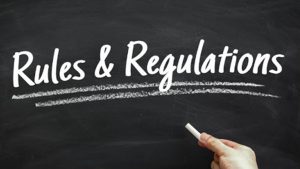1. I have money saved and I am looking for a property to buy. How will I know whether I am entitled for a bank loan?
First of all one has to fix an appointment with a bank before even starting to look for a property. Banks in general ask for a deposit (min: 10%) and repayments are calculated based on income and age. Every case is different and there are instances when the bank accepts less than 10% deposit if another security or guarantee is offered.
New customers are considered as well as long as one provides a bank statement showing good conduct of account.
2. How long do I have to be working to able to apply for a bank loan?
A customer needs to have worked his or her probation period . Banks usually ask customers to provide them with work contracts to check probation period and if its definite or an indefinite contract.
For self employed persons at least 2 years tax returns and tax statements are needed. Ultimately all cases are different and if a self employed person has only 1 year tax return a bank can still consider the mortgage.
3. Will the bank guide me to manage my finances and see whether I can afford the repayments?
The bank will always guide the customer accordingly. Affordability and net disposable income are calculated upon issuing a quotation. A couple with one child or more has more expenses than a single person living on his own. It is of paramount importance that customers have enough funds saved to pay for notary fees and stamp duty, architect fees and bank charges. Usually there are benefits and offers for first time buyers as in bank charges and rates. The banks require a life insurance cover and a house insurance as well, so these have to be taken into consideration as well. One can opt to pay the life insurance monthly together with loan repayment and house insurance is paid once a year.
Not all banks have same policies but generally affordability is calculated on the monthly gross income and net disposable income is calculated on the net monthly income.
4. If I earn Euro 20k annually. What loan am I entitled to?
It always depends on the age. Maximum term of mortgages is usually 40 years but sometimes banks consider to extend the age limit from 65yrs to 70 years (especially when a customer is a professional such as a doctor or a lawyer). The younger the person, the lower the monthly repayments. One has to bear in mind that banks have different policies as well.
It also depends on how much front finance(deposit) is being paid by customer. A loan repayment calculator can be found on internet. This helps to at least have an idea what the monthly repayment will be. Average rate in Malta is currently 3%, obviously banks have their own offers and could be a bit less.
Assuming a 25 year old single person with a Eur20k gross income with a 10% deposit saved, repayment should be in the region of Eur450/ Eur500 per month over 40 yrs.
One should always get a quote and a good explanation from the bank before signing a promise of sale. There are instances where a person exceeds affordability but has extra security to offer such as another property, saved funds/investments, or maybe parents that can act as guarantors. The bank will surely try to find other options to help the customer out.
5. If I buy on plan, when will I start paying the repayments?
If buying on plan, contract will be signed upon completion of property as per promise of sale. Repayments start a month after the contract is signed. Another benefit when buying on plan is that one has more time to save.
6. How much do I need to have saved to apply for a loan?
Minimum of 10% of purchase price of property. As mentioned above, this is always at the discretion of the bank if to ask for less or more.
One has to save for stamp duty and notary fees as well. A notary can help to give an indication of the amount to be saved.
7. What documentation is needed to apply for a loan?
- Id Card or passport
- Work Contract
- Latest payslip
- Last 1 year and sometimes 2 years FS3s
- Promise of sale
- Mepa permits and approved plans of the property
- Site plan
- If there is a ground rent – last receipt
- If self employed:
- 2 years income tax returns together with profit and loss




